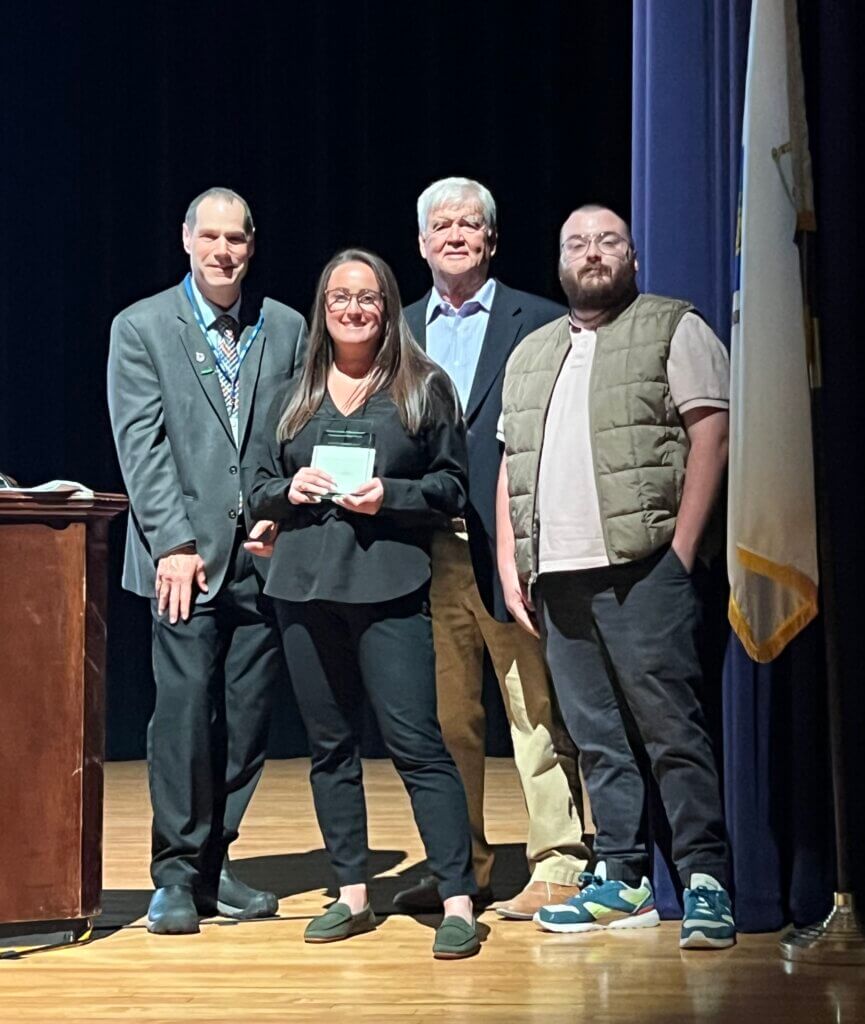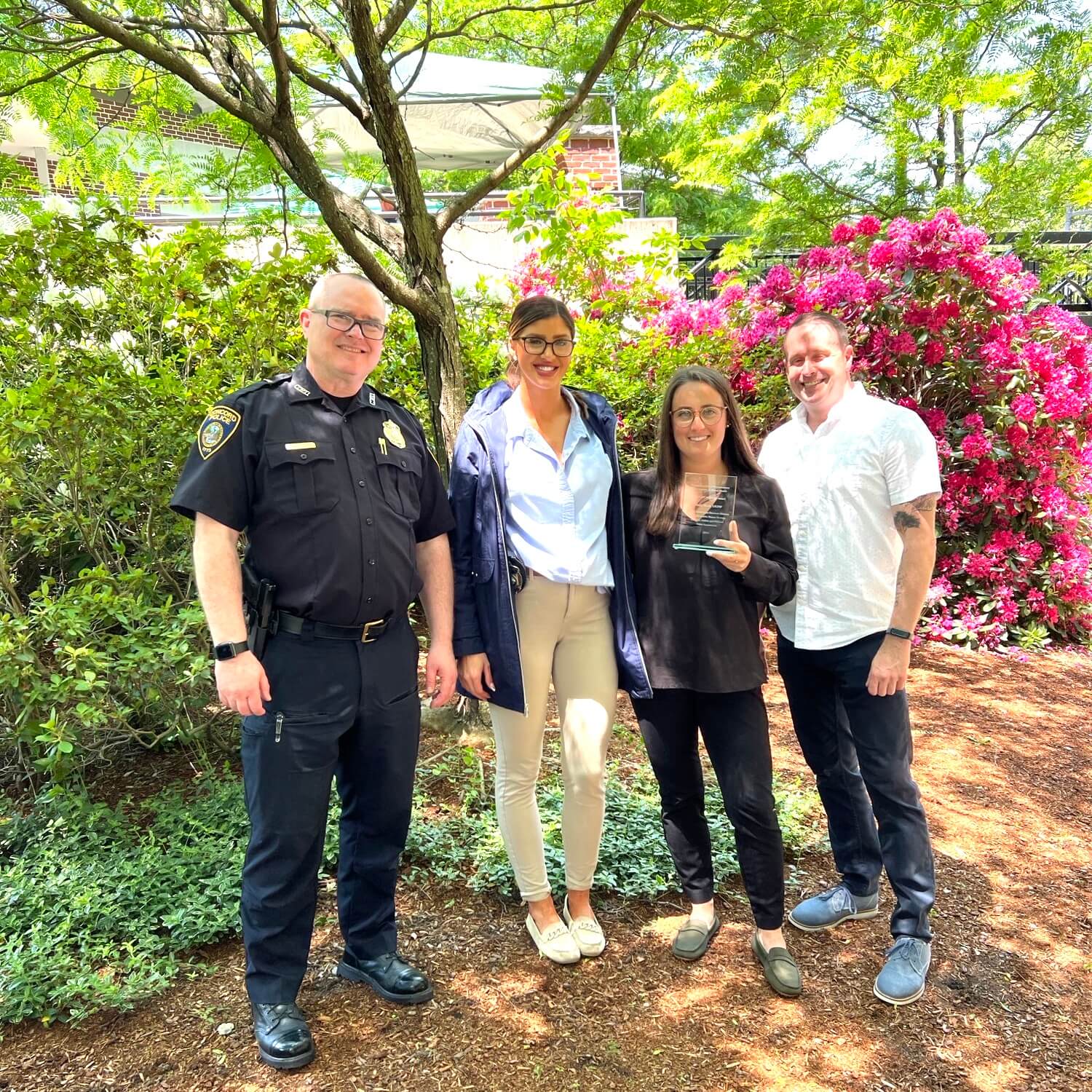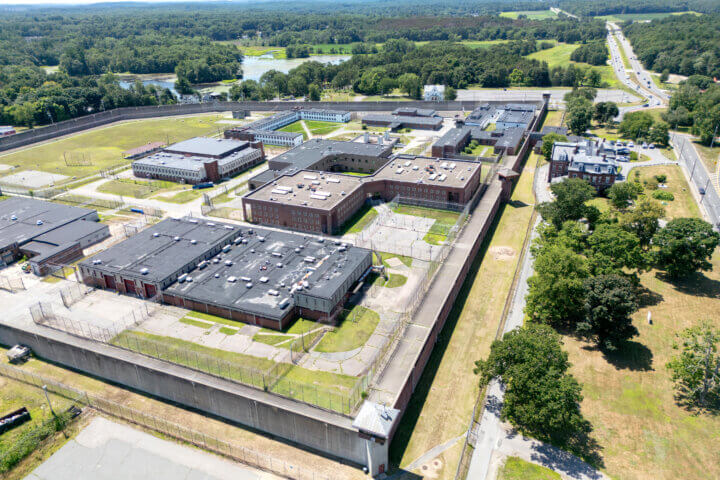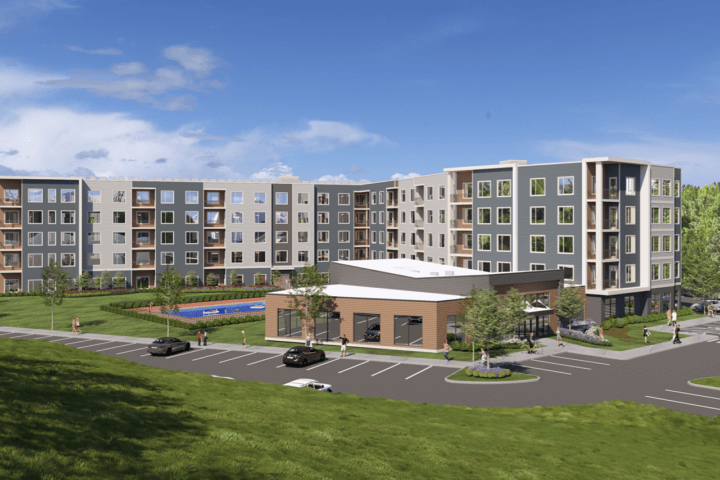By Erin Tiernan — Erin@theconcordbridge.org
Emily Black was on vacation when she looked at her phone and saw an incoming call from Concord Police lighting up the screen.
Without hesitation, the licensed social worker and clinical coordinator excused herself from lunch. “I answered my phone quickly because I thought there was something they needed help with,” she said.
But they weren’t ringing the mental health clinician for her assistance in helping officers de-escalate an emergency situation. It was to tell her they’d nominated her for an award highlighting exemplary performance for her collaboration with law enforcement — and she’d won.
Black became the first-ever recipient of the Karin Orr Memorial Award at the 13th annual Mental Health and Law Enforcement Conference at Fitchburg State University on June 5.
“I just felt really thankful and honored that they felt like it was important enough to nominate me,” Black said.
A ‘game changer’
Mental health workers respond to emergencies alongside officers and intervene to de-escalate situations. They also provide training to departments and connect community members with behavioral health services.
Orr was a clinician and manager at the state Department of Mental Health who was instrumental in the Jail Diversion Program, which provides annual grants for social workers like Black to work directly with under-resourced police departments. The award named for her recognizes a clinician who shares Orr’s passion for incorporating mental health awareness into law enforcement.

Black is the Jail Diversion Program coordinator at Eliot Community Human Services. She does clinical outreach alongside police in Concord, Carlisle, and Maynard. A state grant pays for the program’s cost.
Concord Police Captain Brian Goldman described Black’s partnership locally as a “game changer” for officers.
“We’re really not equipped to deal with all of the mental health issues that we’re seeing today,” he said.
Goldman said by working with Black, Concord’s emergency response team is better equipped for an “exponential” rise in mental health emergencies here and across the state.
Increasing need
During 2020, Black’s first year on the job, she assisted with 97 new mental health incidents in Concord, often at emergency scenes. Not even halfway through this year, she has already handled 94 such calls — or nearly double, department data show.
This year, the program began tracking post-emergency follow-up calls where Black connects those in need with continuing resources, ensuring support long after police clear the scene. She’s made 162 such contacts so far this year.
Goldman said the numbers are “off the charts as compared to years past.” Pre-pandemic years came and went with 50 or fewer program referrals, he said.
The program launched in 2016 in response to the worsening opioid epidemic. The goal was to shift the focus to prevention, intervention, and services as the state sought to move away from punitive criminal punishment for substance users.
Today’s program serves a much broader need, Black said, calling the name “a bit misleading.”
She works closely with school departments, aging residents, and more. Calls to which she’s responded have ranged from an erratic driver who turned out to be having a panic attack to missing persons cases.
“I think a big thing is normalizing that people are calling police departments for help,” Black said.
“It’s confidential information, and it’s happening every day. When I tell people that, they’re often surprised. Most of our calls aren’t criminal.”






